In the dynamic world of semi-trailers and heavy industry, the hydraulic platform stands out as a pivotal component that enhances both functionality and safety. At CarMax Vehicle, we recognize the critical role that hydraulic platforms play in modern transportation and logistics. This comprehensive guide delves into the meaning of hydraulic platforms, their benefits, varied applications, and why integrating them into your semi-trailers can significantly optimize your operations.
What is a Hydraulic Platform?
A hydraulic platform is a mechanical system powered by hydraulics that facilitates the lifting, lowering, and stabilizing of loads. Unlike manual systems, hydraulic platforms use fluid pressure to generate force, allowing for smoother and more controlled movements. This technology is integral to various industries, providing the necessary leverage to handle heavy or cumbersome items with precision and ease.
Key Components of a Hydraulic Platform
| Component | Function |
|---|---|
| Hydraulic Pump | Generates fluid flow and pressure necessary for platform operation |
| Hydraulic Cylinder | Converts fluid pressure into linear motion to lift or lower loads |
| Control Valves | Direct the flow of hydraulic fluid to specific cylinders |
| Reservoir | Stores the hydraulic fluid required for the system |
| Hydraulic Lines | Transport the fluid between components |
Understanding these components is essential for appreciating how hydraulic platforms operate and the advantages they offer.
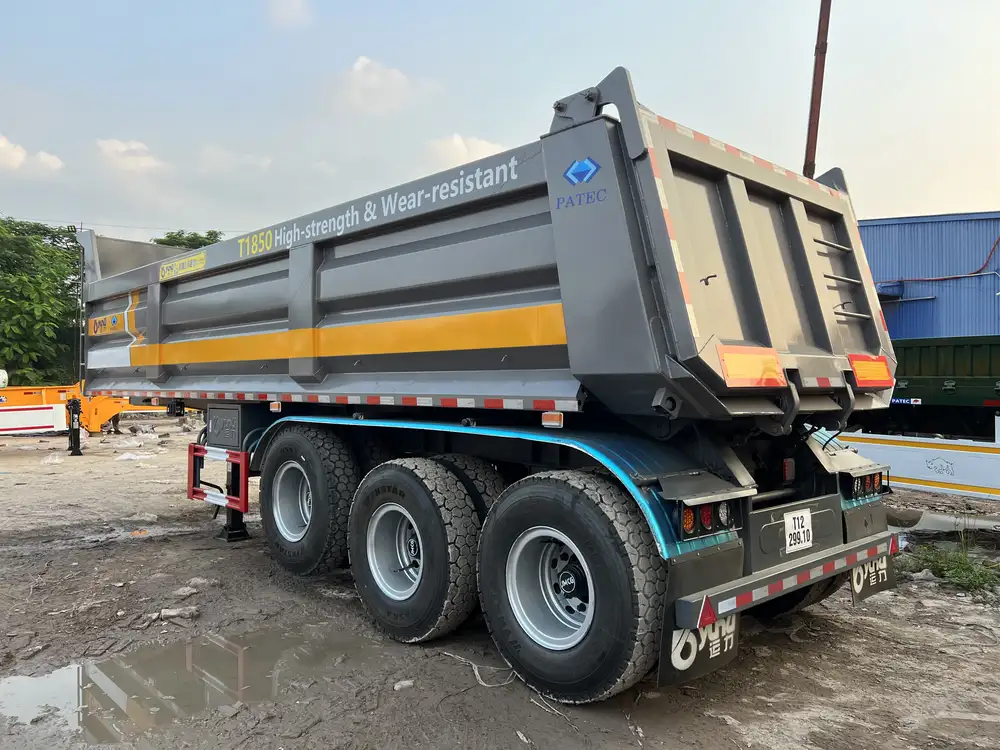
Benefits of Hydraulic Platforms in Semi-Trailers
Enhanced Load Handling
Hydraulic platforms significantly improve load handling capabilities. By providing consistent and reliable lifting power, they enable the safe transport of heavy or irregularly shaped cargo. This reduces the risk of accidents and ensures that goods are delivered intact.
Improved Efficiency
The automation provided by hydraulic platforms enhances operational efficiency. Tasks that previously required significant manual labor can now be accomplished swiftly and with minimal effort. This not only speeds up the loading and unloading processes but also allows for better resource allocation within your operations.

Increased Safety
Safety is paramount in the transportation industry. Hydraulic platforms offer enhanced stability and control, minimizing the chances of load shifting or accidental drops. This protective measure safeguards both the cargo and the personnel handling it, fostering a safer working environment.
Durability and Reliability
At CarMax Trailer, we design our hydraulic platforms to withstand the rigors of constant use. Made from high-quality materials and engineered for longevity, these platforms provide reliable performance even in the most demanding conditions.
Applications of Hydraulic Platforms in the Transportation Industry
Hydraulic platforms are versatile and find applications across various sectors within the transportation industry. Here are some of the primary uses:
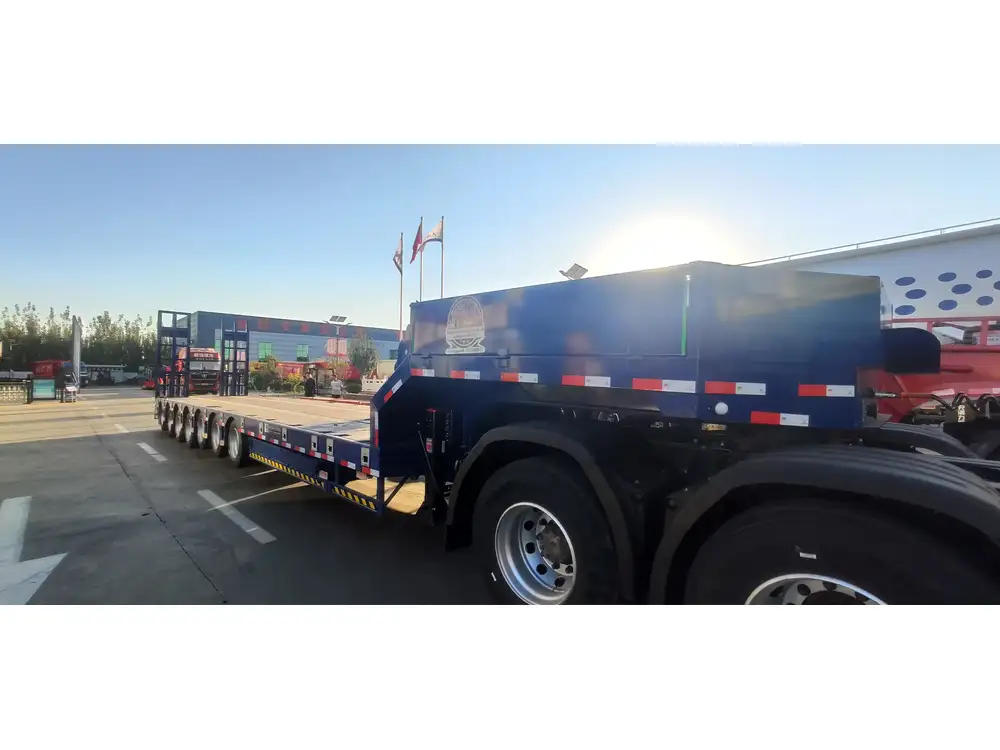
Loading and Unloading Cargo
Hydraulic platforms streamline the process of loading and unloading cargo from semi-trailers. By providing a controlled lift, they ensure that goods can be moved efficiently and safely, reducing the time and labor required for these tasks.
Adjusting Trailer Levels
Maintaining the correct trailer level is crucial for vehicle stability and load balance. Hydraulic platforms allow for precise adjustments, ensuring that the trailer remains level regardless of terrain or load distribution. This adaptability enhances driving safety and comfort.
Retractable Ramps and Scissor Lifts
Hydraulic technology is often employed in retractable ramps and scissor lifts integrated into semi-trailers. These features facilitate easy access for forklifts and other machinery, simplifying the movement of heavy items onto and off the trailer.

Emergency Load Securing
In unforeseen circumstances, hydraulic platforms can be used to quickly secure or reposition loads to prevent shifting during transit. This emergency feature is vital for maintaining cargo integrity and ensuring compliance with transportation regulations.
Comparing Hydraulic Platforms to Alternative Systems
When considering the integration of a platform system into your semi-trailer, it’s essential to evaluate the benefits of hydraulic systems against alternative options such as mechanical or pneumatic systems.
Hydraulic vs. Mechanical Platforms
| Feature | Hydraulic Platforms | Mechanical Platforms |
|---|---|---|
| Lifting Power | High, capable of handling heavier loads | Limited, better suited for lighter loads |
| Control and Precision | Superior control with smooth, gradual movements | Less precise, can be jerky or abrupt |
| Maintenance | Requires regular fluid checks and component care | Generally simpler but may wear out faster |
| Cost Efficiency | Higher initial investment, long-term savings | Lower upfront costs, potential for higher maintenance costs |
Hydraulic platforms offer superior lifting power and precision compared to mechanical alternatives, making them ideal for heavy-duty applications where control and reliability are paramount.

Hydraulic vs. Pneumatic Platforms
| Feature | Hydraulic Platforms | Pneumatic Platforms |
|---|---|---|
| Force and Power | Capable of generating high force and movement | Generally less powerful, suitable for lighter tasks |
| Energy Efficiency | More efficient for continuous heavy operations | Can be less efficient, especially under heavy loads |
| Maintenance | Requires hydraulic fluid management | Needs regular air system checks and maintenance |
| Noise Levels | Typically quieter operationally | Can produce more noise due to air compression |
While pneumatic platforms are useful for specific lighter applications, hydraulic platforms are preferred for their strength and efficiency in handling substantial loads.
Designing Hydraulic Platforms for Semi-Trailers
At CarMax Vehicle, we prioritize custom design solutions to meet the unique needs of our clients. The design process of a hydraulic platform for a semi-trailer involves several critical steps:
Needs Assessment
Understanding the specific requirements of your transportation operations is the first step. This includes evaluating the types of loads handled, frequency of use, and environmental conditions.

Selecting the Appropriate Components
Choosing the right hydraulic pump, cylinders, valves, and other components is essential for ensuring optimal performance. Our engineers select components based on durability, efficiency, and compatibility with your trailer specifications.
Custom Integration
Each semi-trailer is unique, and our hydraulic platforms are tailored to integrate seamlessly with your existing trailer design. This custom integration ensures that the platform operates smoothly without compromising the trailer’s structural integrity.
Testing and Quality Assurance
Before deployment, each hydraulic platform undergoes rigorous testing to ensure it meets our high standards of performance and safety. This step guarantees that the platform will function reliably under real-world conditions.

Maintenance and Troubleshooting Tips
Proper maintenance is crucial for the longevity and reliability of your hydraulic platform. Here are some essential tips to keep your system in top condition:
Regular Inspections
Conduct routine inspections of all hydraulic components, including hoses, cylinders, and valves, to identify any signs of wear or damage early on.
Fluid Management
Ensure that the hydraulic fluid is maintained at the appropriate levels and is free from contaminants. Regularly check and replace the fluid as recommended by the manufacturer.
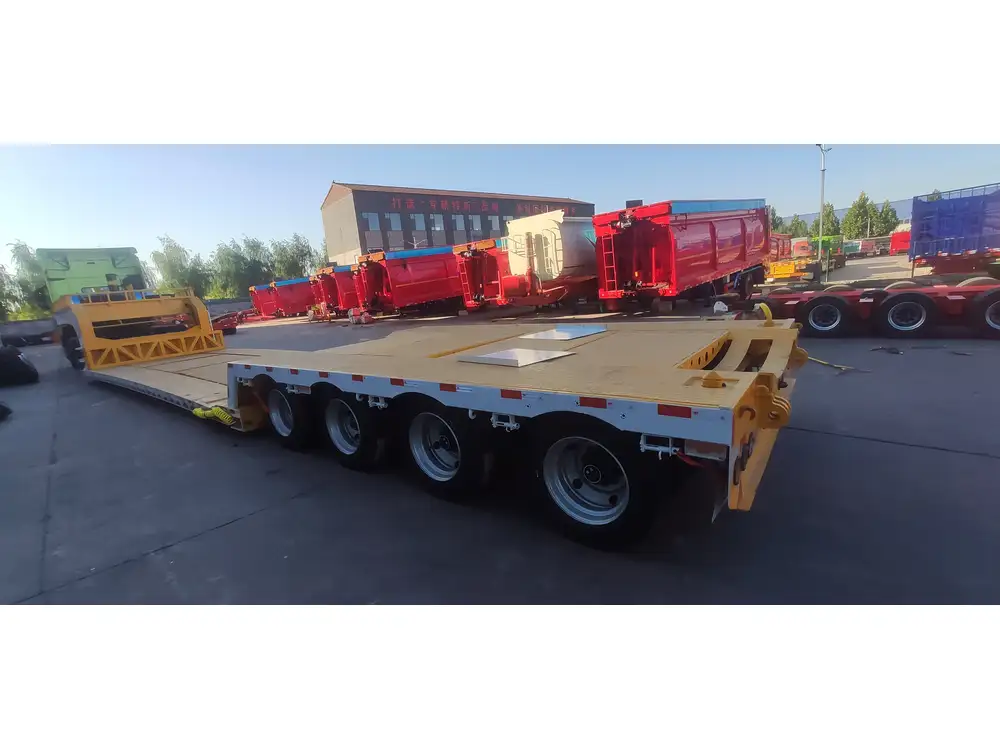
Leak Prevention
Leaks can compromise the efficiency and safety of your hydraulic platform. Promptly address any leaks by replacing faulty seals or damaged hoses to prevent further issues.
System Calibration
Periodically calibrate the hydraulic system to maintain precise control and ensure that the platform operates as intended.
Professional Servicing
Engage with certified technicians for comprehensive maintenance and repairs. Professional servicing helps identify and rectify issues that may not be apparent during routine checks.

The Future of Hydraulic Platforms in Heavy Industry
As technology advances, hydraulic platforms continue to evolve, incorporating new innovations that enhance their functionality and efficiency. Here are some trends shaping the future of hydraulic platforms:
Automation and Smart Controls
Integration with automated systems and smart controls allows for more precise operation and monitoring of hydraulic platforms. This advancement leads to increased efficiency and reduced human error.
Lightweight Materials
The development of lightweight yet durable materials for hydraulic components contributes to overall system efficiency, reducing energy consumption and enhancing load-handling capabilities.
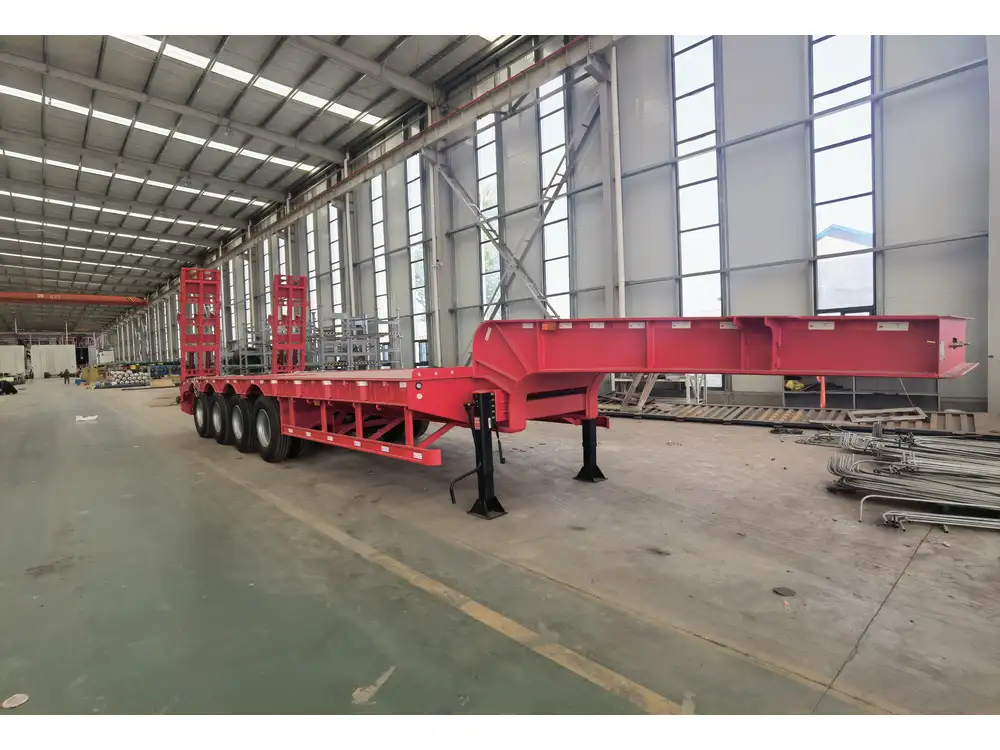
Enhanced Safety Features
Future hydraulic platforms will incorporate advanced safety features such as automated braking systems and real-time monitoring to further protect both the cargo and the operators.
Energy Efficiency Improvements
Innovations aimed at improving energy efficiency will make hydraulic platforms more sustainable and cost-effective, aligning with global efforts to reduce industrial energy consumption.
Why Choose CarMax Vehicle for Your Hydraulic Platform Needs
At CarMax Vehicle, we are committed to delivering top-tier hydraulic platforms tailored to the unique demands of the transportation sector. Our expertise in design, manufacturing, and integration ensures that your hydraulic platform will perform reliably and efficiently.

Superior Quality
We use only the highest quality materials and components in our hydraulic platforms, ensuring durability and longevity even under the most challenging conditions.
Custom Solutions
Every client has unique needs, and we pride ourselves on providing customized hydraulic platforms that seamlessly integrate with your specific semi-trailer designs and operational requirements.
Expert Support
Our team of experienced engineers and technicians are dedicated to supporting you every step of the way, from initial design consultations to ongoing maintenance and support.
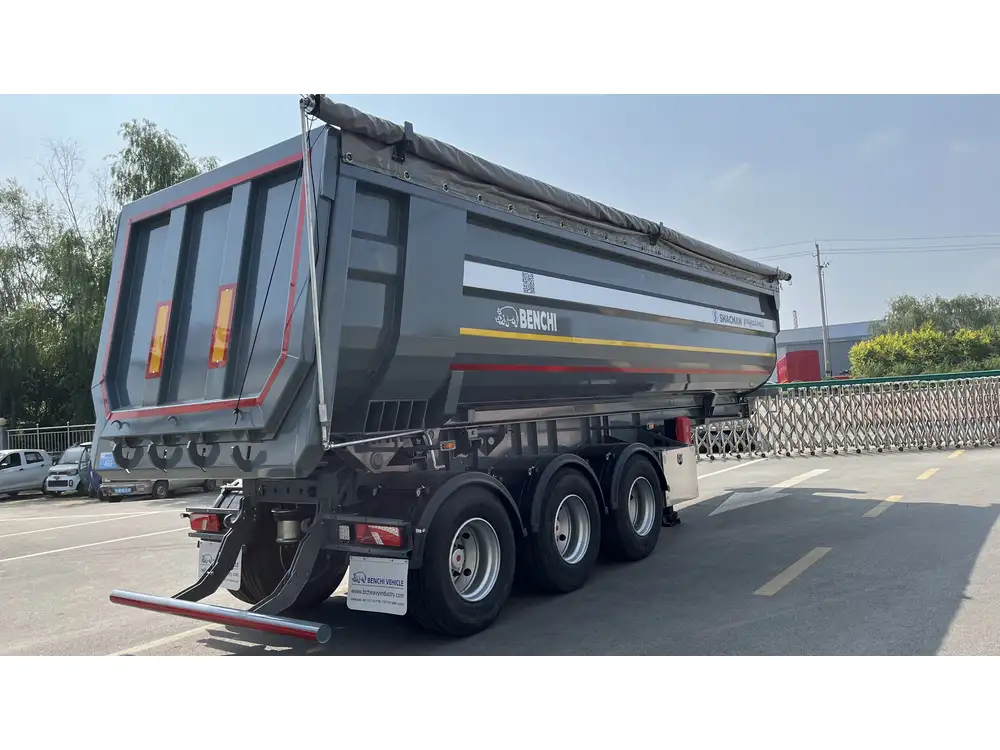
Competitive Pricing
We offer competitive pricing without compromising on quality, making our hydraulic platforms a cost-effective solution for enhancing your transportation operations.
Conclusion
Hydraulic platforms are indispensable in the realm of semi-trailers and heavy industry, offering enhanced load handling, improved efficiency, and increased safety. At CarMax Vehicle, we understand the intricacies of hydraulic systems and are dedicated to providing solutions that meet the highest standards of performance and reliability. By integrating our expertly designed hydraulic platforms into your semi-trailers, you can optimize your operations, ensure the safe transportation of goods, and stay ahead in a competitive market.
Frequently Asked Questions

1. What is the primary advantage of using a hydraulic platform over a manual lifting system?
Hydraulic platforms offer greater lifting power, precision control, and efficiency compared to manual systems, enabling safer and more efficient handling of heavy loads with minimal effort.
2. How often should I perform maintenance on my hydraulic platform?
Regular maintenance is crucial for optimal performance. It is recommended to perform routine inspections and fluid checks weekly, with comprehensive servicing by a professional technician at least once a year.
3. Can hydraulic platforms be customized for different types of semi-trailers?
Yes, hydraulic platforms can be customized to fit various semi-trailer designs and operational requirements. At CarMax Vehicle, we tailor our solutions to meet the specific needs of each client.

4. What should I do if my hydraulic platform is leaking?
If you notice a leak in your hydraulic platform, immediately shut down the system to prevent further damage. Inspect the source of the leak and replace any faulty seals or hoses. It is advisable to consult a certified technician for thorough repairs.
5. Are hydraulic platforms energy-efficient?
Modern hydraulic platforms are designed to be energy-efficient, especially with advancements in hydraulic technology and the use of lightweight materials. Proper maintenance also ensures that the system operates efficiently, reducing energy consumption.



